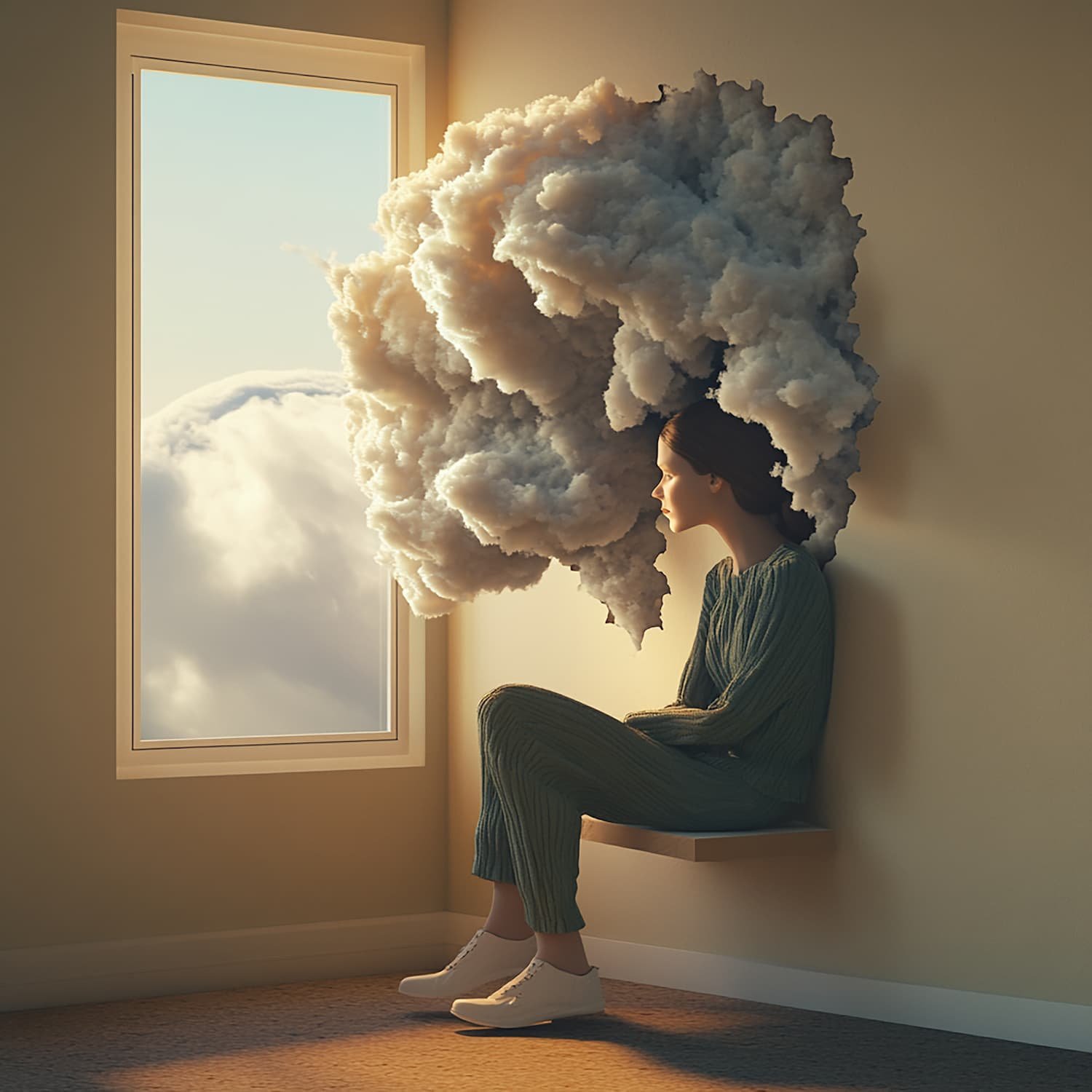Depression
What is Depression?
Depression is a psychological disorder that affects many aspects of an individual’s life, including emotions, thinking patterns, and daily functioning.
It is one of the most common mental disorders in the world, affecting millions of people globally. It can cause deep sadness and helplessness, negatively impacting one’s ability to perform daily activities and leading to a decline in quality of life.
Symptoms of Depression
Depression symptoms vary from person to person, but some common symptoms include:
- Sadness:
Persistent sadness and an inability to escape this emotional state. - Loss of Interest:
The individual no longer finds joy in activities they previously enjoyed, whether hobbies or daily tasks. - Fatigue:
Constant tiredness, even without engaging in physical effort. - Insomnia and Anxiety:
Difficulty sleeping or excessive sleep. - Appetite Changes:
Either overeating or a significant loss of appetite. - Suicidal Thoughts:
Feeling hopeless and believing life has no value. - Lack of Concentration:
Struggling to focus and complete daily tasks.
Causes of Depression
Several factors contribute to the development of depression, including:
- Genetic Factors:
Heredity plays a significant role in increasing the likelihood of depression. - Physical Illnesses:
Chronic diseases, especially those causing persistent pain, can trigger depression. - Medications:
Certain medications containing narcotic substances, along with addiction to drugs or alcohol, may contribute to depression. - Life Stressors:
Past or present life challenges and pressures can play a major role in triggering depression.
Types of Depression
There are several types of depression, including:
- Major Depression:
One of the most severe forms, often requiring long-term treatment. - Persistent Depressive Disorder:
A chronic form of depression where symptoms last for extended periods. - Postpartum Depression:
Depression that occurs after childbirth due to hormonal changes. - Premenstrual Depression:
Severe emotional distress occurring before menstruation. - Seasonal Affective Disorder (SAD):
Depression linked to seasonal changes, often occurring in winter due to reduced sunlight. - Situational Depression:
Depression triggered by specific life events or difficult circumstances. - Reactive Depression:
Depression that arises due to an emotional event without a clear, underlying medical condition.
How is Depression Diagnosed?
Diagnosing depression is not always straightforward. A doctor may ask several questions about the patient’s symptoms, their onset, and whether the patient has other health conditions or side effects. Medical and laboratory tests may also be conducted to identify any underlying causes.
Depression in Islam
Islam does not deny the presence of emotional distress in a believer’s life. However, it teaches that depression may sometimes be linked to distance from faith or engaging in sinful actions. For example, neglecting prayer can contribute to emotional instability and distress.
Treatment of Depression
Depression treatment often involves a combination of approaches, including psychotherapy and medication. Various treatment methods include:
1. Medication:
- Antidepressants:
Used to balance brain chemicals and improve mood. - Mood Stabilizers:
Help control mood swings associated with certain types of depression.
2. Psychotherapy:
- Cognitive Behavioral Therapy (CBT):
A type of therapy that helps patients identify and change negative thought patterns and behaviors. - Interpersonal Therapy (IPT):
Focuses on improving social relationships and reducing self-isolation.
3. Electroconvulsive Therapy (ECT):
This method is used for severe cases that do not respond to medication or psychotherapy. It is conducted under strict medical supervision.
4. Lifestyle Changes:
- Exercise:
Physical activity boosts endorphins, which act as natural pain relievers and mood enhancers. - Healthy Diet:
Proper nutrition positively impacts mental health. - Relaxation Techniques:
Meditation and yoga can help reduce stress and improve emotional well-being.
Preventing Depression
While it may not always be possible to completely prevent depression, there are steps individuals can take to reduce their risk:
- Engage in activities that spark curiosity and interest.
- Maintain a balanced social life.
- Follow a healthy and nutritious diet.
- Exercise regularly.
- Ensure adequate sleep.
- Avoid smoking and excessive alcohol consumption.
How to Help Yourself Overcome Depression?
One of the most effective ways to cope with depression is to practice self-acceptance and focus on positive aspects of life. Maintaining prayer, reciting Quran (especially Surah Al-Baqarah), getting enough rest, and surrounding oneself with supportive people can greatly aid in overcoming depression.
Conclusion
Depression is not a sign of weakness or personal failure; it is a medical condition that requires support and appropriate treatment. Those suffering from depression should know that help is available and that effective treatment options exist. With the right therapy and support, most individuals with depression can regain their well-being and lead healthier, happier lives.
